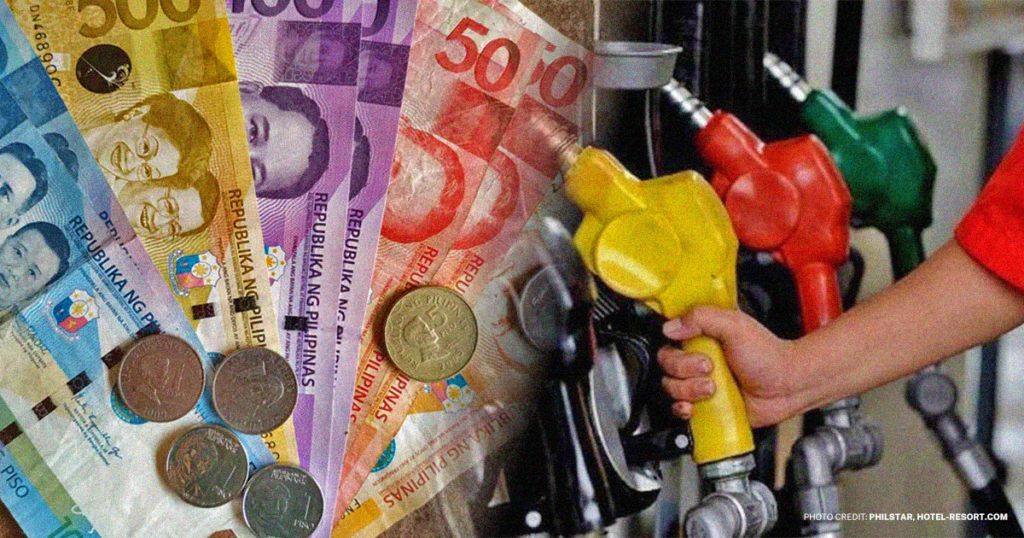
Research group IBON said that this week’s oil price rollback is not so “big-time” and does not make up for the 11 weeks straight of fuel price hikes. The group said that even the Duterte administration’s belated move to raise cash aid to Php500 per month does little to help millions of poor and vulnerable Filipino households recover lost incomes and cope with rising prices. The government can afford to give much more if it wanted to, IBON said, if it saw giving ayuda as not just a way to deflect criticism for its inaction and win points with the public.
Oil prices were rolled back yesterday by Php5.45 for gasoline, Php11.45 for diesel and Php8.55 for kerosene. IBON said however that this week’s rollbacks will only recover just an average of one-third of the 11 weeks of continuous oil price hikes that heavily burdened and are still burdening many Filipinos. The group estimates that this recent rollback only makes up: 27% of the Php20.35-20.50 net increase for gasoline; 37.2-39% of the Php29.35-30.75 net increase for diesel; and 34.3% of the Php24.90 net increase for kerosene.
IBON said that the fuel price increases come on top of two years of harsh pandemic lockdowns that devastated the incomes and livelihoods of millions of Filipino families who are still trying to recover. The group said that the planned Php500 monthly cash aid to the 50% poorest households is paltry and tokenistic and leaves out many more families in need when the administration can afford to give more.
The group said that Php500 per month or just Php16.67 per day covers only a small amount of the net oil price hikes and is not enough for already struggling families to recover from the impact of these in terms of rising prices. It also just barely makes up for the erosion of purchasing power in the past year due to inflation. IBON’s latest estimates on the family living wage shows that a family of five in the National Capital Region (NCR) needs at least Php1,072 a day or Php25,252 a month to live decently.
The cash assistance appears even more miniscule and the impact of oil price hikes even more burdensome when looking at how much real wages have fallen under the current administration. Using official inflation figures rebased to 2018, IBON estimates that the real value of the minimum wage in the NCR has fallen by 8% from Php536.74 at the start of Duterte’s term in July 2016 to Php494.02 in February 2022.
Meanwhile, with the government only targeting 50% of the poorest households for the subsidy, IBON said that not enough poor Filipino families will be able to receive ayuda and that it is the poorest 70-80% of households that should instead be targeted. According to Bangko Sentral ng Pilipinas data, 7 of 10 Filipino households are without savings.
The group also noted that many more could have fallen into poverty after the recent drop in the number of employed persons by 3.3 million from December 2021 to January 2022 and the number of labor force participants by 3.6 million, which could indicate millions more joining the ranks of discouraged jobless workers.
IBON said that the administration could do much more if it really wanted to address the oil price hike impacts, starting with substantial ayuda to vulnerable Filipinos who have lost livelihoods and incomes due to the pandemic and economic crisis. This, instead of handing out token amounts of ayuda to win public favor and blindly prioritizing funds for non-urgent infrastructure and debt servicing.
The group said that government should give a Php10,000 cash aid to the 18 million poorest families, as targeted under Bayanihan 1, and for at least 1-2 months. It should also ensure a substantial wage increase nationwide so that workers and their families can live decently and meet their basic needs. The Bayanihan 3 bill which has been dormant since last year should also be reviewed and adjusted to account for worsening conditions of the Filipino people and economy.






